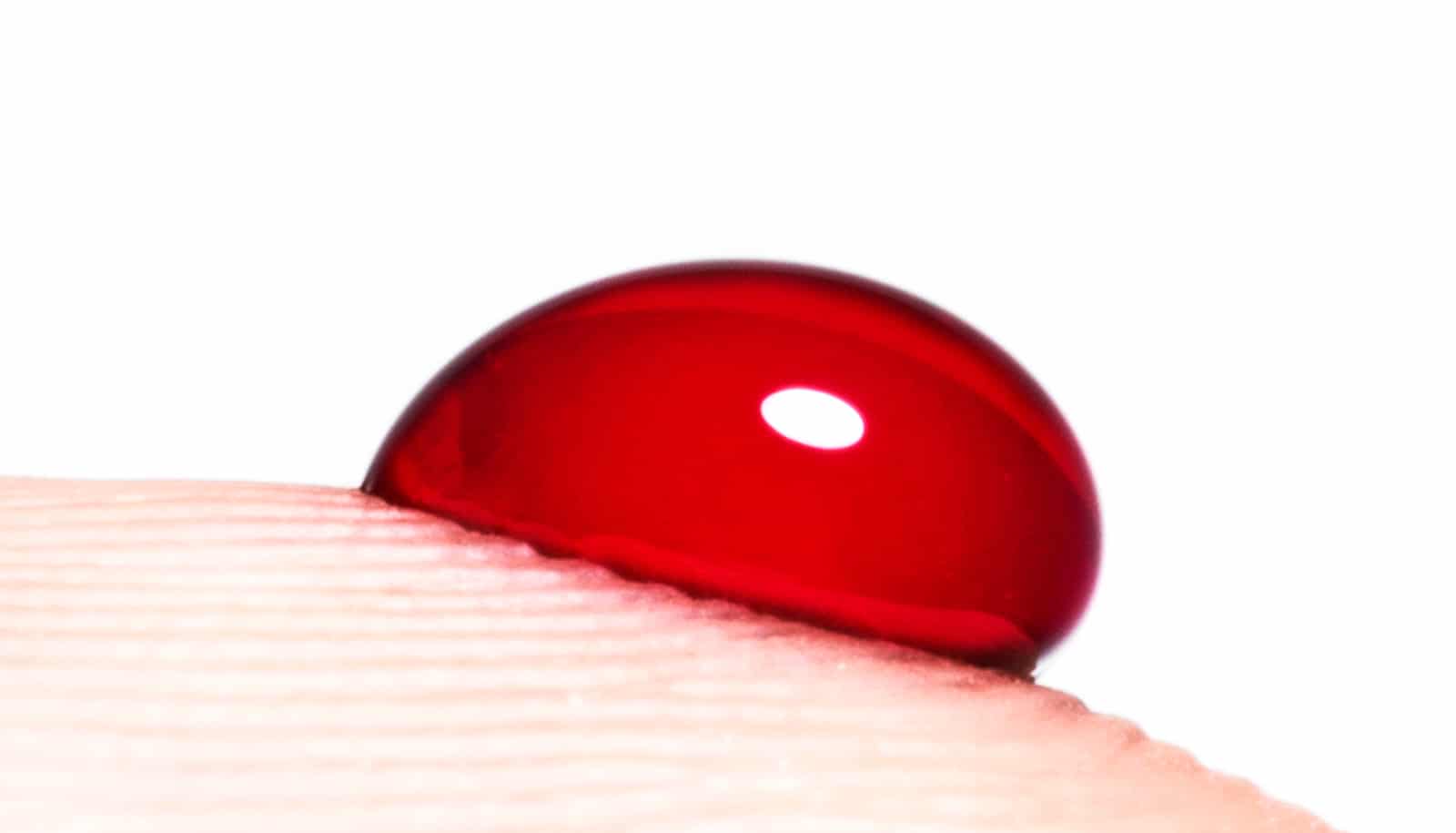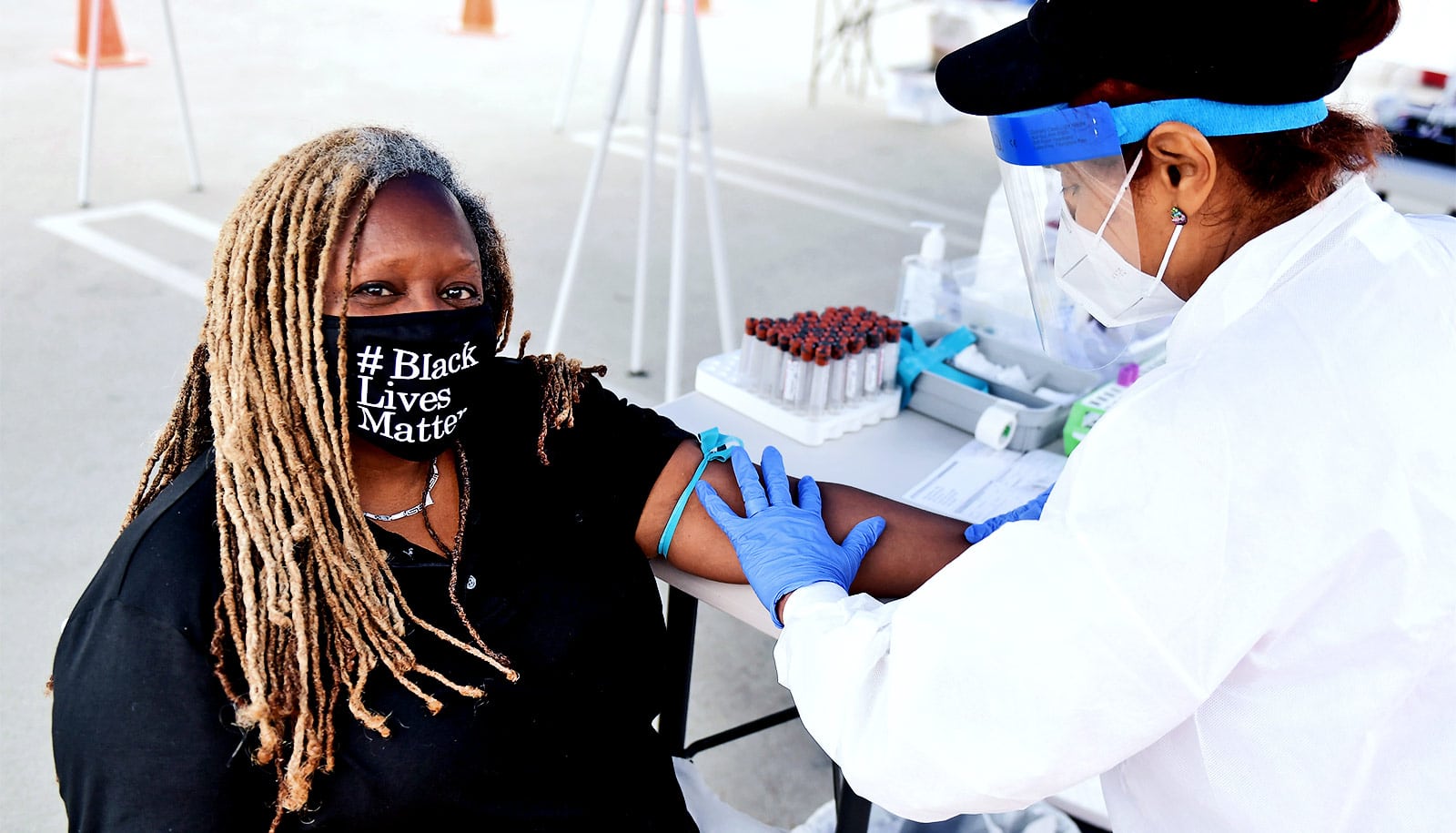A new rapid blood test could confirm if a person has received a COVID-19 vaccine while they wait to board a plane or enter a sporting event.
One challenge as society reopens is identifying who has been vaccinated for SARS-CoV-2, the virus that causes COVID-19.
The new COVID-19 antibody test is similar to one used at home to determine blood type, where the user pricks a finger and places a drop of blood on a card. A fusion protein the research team developed that’s housed on the card detects COVID-19 antibodies, tiny proteins in the blood which the immune system produces to “remember” viral encounters and provide immunity to future infections.
Results come back in less than five minutes, faster than current lateral flow tests to detect antibodies at point of care, while also potentially providing a clearer result.
The blood test could be used to confirm a person’s vaccination instead of having to show a vaccine card, says Robert Kruse, a pathology resident at Johns Hopkins University School of Medicine who created the card. Kruse is also lead author of a paper available on medRxiv ahead of peer-reviewed publication.
“If a business is using the honor system for vaccinations, now they could test people on-site,” he says.
In the paper, researchers reported results of the test on 400 blood samples, half of which were from prior COVID-19 patients. The test correctly identified antibodies in previously infected patients 87.5% of the time, a slightly higher rate than ELISA tests performed in hospitals that require hours to perform.
The test uses hemagglutination, in which the degree of clumping together of red blood cells reveals the concentration of antibodies. Kruse says the hemagglutination results could let people know if they still have protection months after they received the vaccine or if they need a booster shot. The degree of hemagglutination also correlates with levels of neutralizing antibodies in patients, which protect against viral infection.
Immunocompromised patients, who studies have shown don’t always respond to the COVID-19 vaccine, could test their antibody level and see if the vaccine is working for them, says coauthor Yuting Huang, a research fellow at Johns Hopkins and chief resident of internal medicine at the University of Maryland Medical Center Midtown Campus.
Kruse and Huang developed the test in the lab of Zack Z. Wang, an associate professor at Johns Hopkins in the hematology division. Johns Hopkins Technology Ventures is seeking patent protection for the technology, which is available for licensing. The test’s creators are seeking an industry collaborator to manufacture the cards and have applied for funding through TEDCO’s Maryland Innovation Initiative to assist in commercializing its research.
Source: Danny Jacobs for Johns Hopkins University



